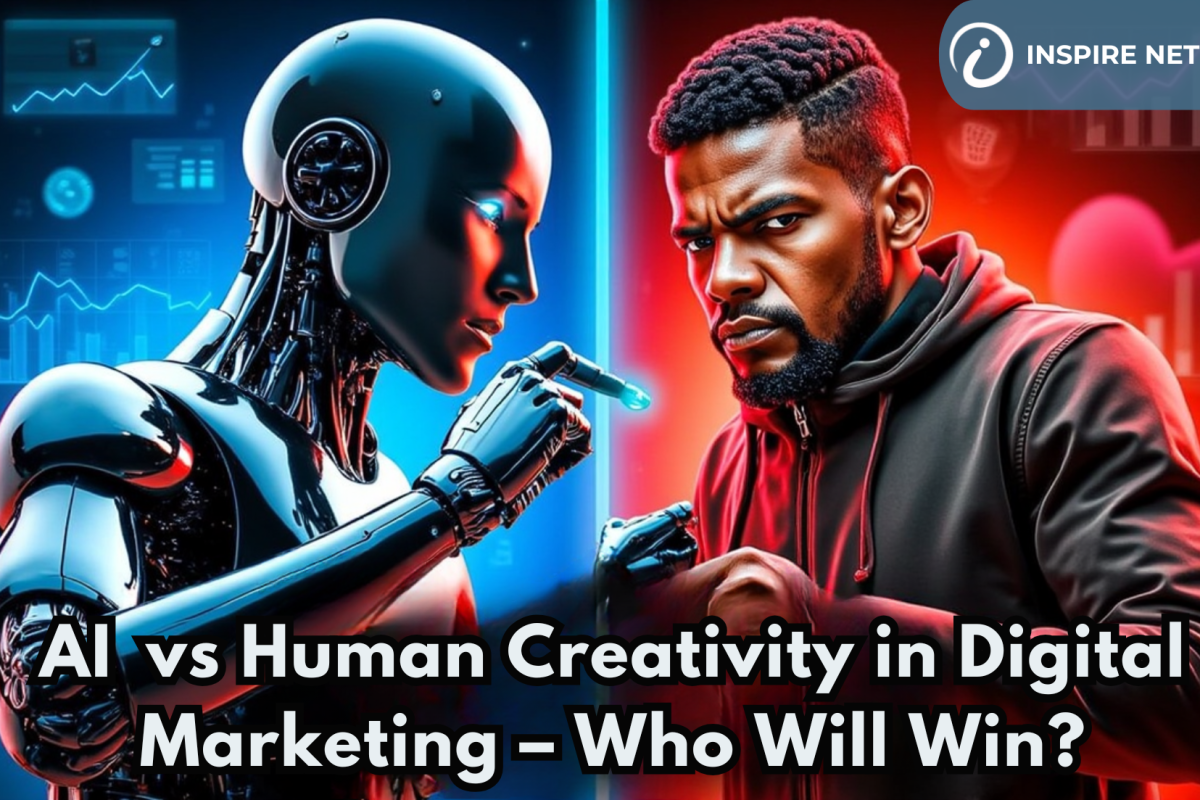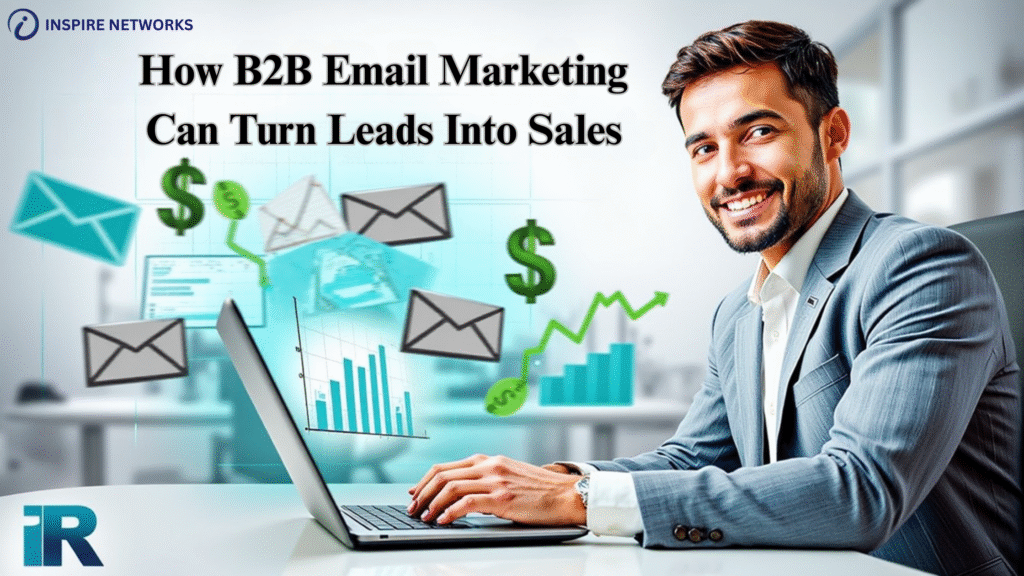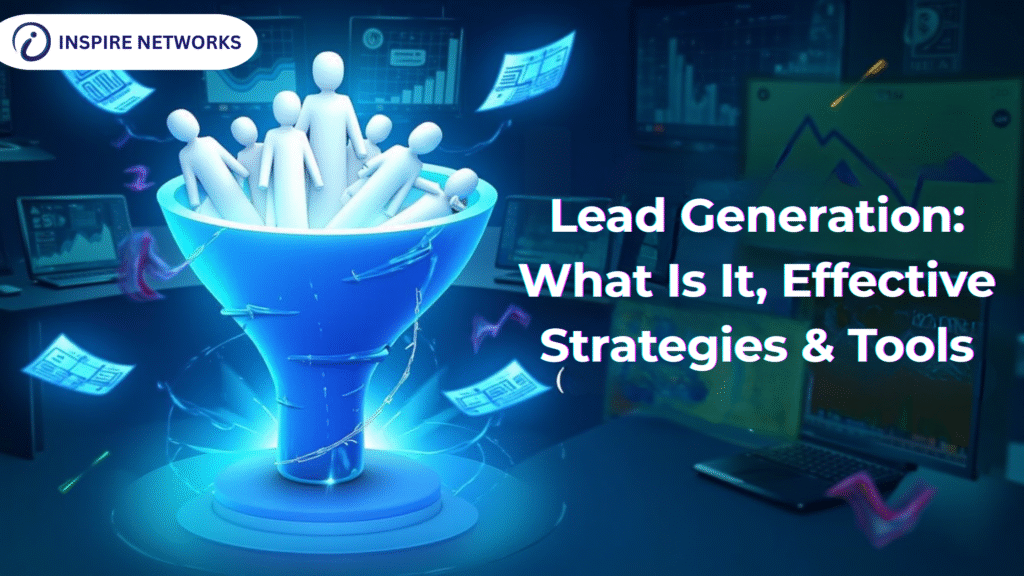Introduction
The internet marketing world has seen a huge change in recent times and Artificial Intelligence (AI) has been one of the dominant factors for this change. Predictive analytics and autogenerated human content are just two powerful examples of A.I., and ways it will continue to change how brands communicate with the public. But amidst this technology revolution, one key question still takes centre stage: Can AI actually compete with the creative impulse of a human brain in digital marketing?
Even though machines can process data more quickly and create content at scale, creativity — arguably the core of marketing — has long been perceived as a uniquely human quality. So in an efficiency-emotion world, who’s going to win, AI or human creativity? Now, let’s look at the argument from the other angle.
AI Changes the Game in Digital Marketing
Artificial Intelligence has proved to be a game changer for digital marketing for its work efficiency, targeting accuracy, and real-time response. Here are some of the ways A.I. is dominating:
Data-Driven Insights
AI is able to track huge volumes of consumer data to uncover trends and even predict future actions. This enables marketers to conduct relatively precise targeting based on interests, demographics, and shopping habits of their target audiences. Apps like Google Analytics 4 and HubSpot harness such AI algorithms to increase the effectiveness of campaigns.”
Content Creation and Curation
AI tools such as Jasper, ChatGPT, and Copy. ai can produce blog posts, ad copy, social media captions, and product descriptions in seconds. They even curate content around trending topics to help marketers remain relevant.
Personalization at Scale
Companies such as Amazon and Netflix rely on AI for personal recommendations. In email, AI is able to personalize messages for individual users based on their activity, increasing engagement in a big way.
Chatbots and Customer Support
Thank CI chatbots are ubiquitous in websites and social platforms these days. They provide 24/7 support, answer FAQs, navigate customers through the buyer journey – all without a single human being involved.
Ad Optimization
By analysing which advertisements perfor best, and adjusting your bids, placements, and network settings, AI optimises PPC campaigns to deliver more returns on investment of your campaigns.
The Human Creativity: The Unsubstitutable Power
So while AI can process the Litany of tasks and data-intensive operations, creative sparks are what give digital marketing its soul. Here’s why the human touch is still important:
The Emotional Intelligence of Storytelling
Marketing is not only about selling a product, but about reaching out to people. Humans have a knack for reading emotion, cultural nuance and social values — all of which AI is still pretty bad at. A good story that engages the audience often originates from human experience and perceptions.
Brand Voice and Identity
It’s the most challenging part to create a unique voice, from tone, sarcasm, humor and context. Simply put: AI can approximate styles, but it cannot offer the original thought and sense of intuitive language that a human writer can.
Out-of-the-Box Thinking
Creativity tends to push limits and elicit risks. Viral campaigns, such as Nike’s “Just Do It” and Apple’s “Think Different,” were not born of data alone but of audacious human ideas that defied the status quo.
Ethical and Moral Judgment
AI may generate work that is tone-deaf or offensive in some cases — particularly when it does not have an understanding of social issues. Human marketers can measure the morality and cultural effects of their campaigns, striving for inclusion and respect.
The Synergy: Human/AI Teams Working in Tandem
Rather than AI and human creativity being at odds, the future of digital marketing is about working in tandem. They are both a powerful pair.
AI as a Creative Assistant
AI can lay the groundwork, generating drafts or suggestions derived from trends and keywords. Only after that can humans come in and polish, add personality, and tailor based on how they know the brand aura and values.
Enhanced Decision-Making
Artificial Intelligence manages data analysis, performance monitoring, and optimization, thereby helping marketers take faster and accurate decisions while concentrating on strategic and creative thinking.
Efficiency + Innovation
With AI handling mundane-plowing tasks, human marketers have additional space to be creative. Their campaigns can be delivered quicker without losing the creative edge.
Case Studies: AI vs Human in the Ring
Coca-Cola’s AI-Generated Ad
Coca-Cola has used A.I. to help generate elements of an advertisement. The visuals and the animation were generated with AI, yet the storytelling and emotional narrative were written by humans. The result? A gorgeously choreographed number that was a perfect blend of tech and heart.
Oréal’s AI-Powered Personalization L’Oréal sought to be ahead of the curve two years ago, when it began testing its Modiface-powered concept in a store in the greater Paris area.
L’Oréal leverages AI to provide individualized product recommendations and virtual try-ons. The technology fuels engagement, but the brand’s campaigns still depend on human influencers and creative teams for emotional resonance and cultural relevance.
Challenges for AI in Creative Industry
Even with such improvements, the boundaries of AI stand as a reminder:
- No Human Emotion: AI are unable to “feel,” so can’t reproduce the genuine heartstrings tugging that you get with genuine human emotion.
- Challenges with Context: It can probably misunderestand… humor… Or sarcasm.
- No Life Experience: AI doesn’t know the real world like a human does, so it has no real basis for creating new ideas.
- The threat of homogenization: If advertising’s content and messaging are staffed too much by what AI generates, it all risks becoming bland and indistinct.
Conclusion: Who Wins?
In AI vs. Human Creativity in Digital Marketing, There Are No Winners Justine Kurland on Unsplash The battle, in AI versus human creativity in digital marketing, doesn’t result in a winner — there is no competition, but a collaboration.
AI contributes speed, scale and data-driven accuracy, while humans provide originality, emotion and a sense of cultural appropriateness. The best digital marketing strategies are those that harness the power of both — using AI to automate and analyze, and the unique abilities of human beings to create and inspire.
This will involve looking more and more at marketeers who are advertising in a broader, more integrated manner and then simply pushing that bar higher and higher, forging genuinely powerful campaigns that are both effective and meaningful.








